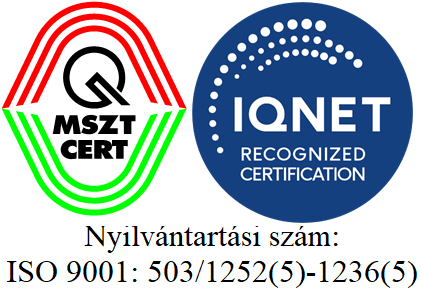Interview with Michael R. Johnson - Situation Report after the first week of IRRS-Mission
2015.05.18
Michael R. Johnson, Deputy Executive Director of the United States Nuclear Regulatory Commission (US NRC), as the team leader of the IRRS-Mission summarises first week experiences.
The mission is a very intense effort.
Most of the team of experts from 11 countries and the IAEA arrived on Saturday
after weeks of preparation. We met on Sunday to review our purpose and
planned activities and to discuss our preliminary impressions. Following
the meeting with senior leaders from the various regulatory and members
of the involved ministries, we began a series of interviews, site visits
and follow up inquiries. We have had many productive interactions and are
off to a good start.
What is left for the next week based
on the Agenda of the Mission?
Looking forward, we will continue to exchange
information with our Hungarian regulatory counterparts to refine our insights
and address remaining questions. We will formulate our preliminary observations
and findings into an early draft report. We will meet on Monday of next
week to discuss our results in each area. On Wednesday we will deliver
a draft preliminary report for written comment and will meet with our counterparts
to review them. By Friday morning, we will have made any appropriate changes
to the report and will conduct an Exit Meeting. While the formal
mission will end then, our work won't end until IAEA has received the final
comments and we have produced a final report.
You said that the regulatory system
was going to be reviewed and not inspected. Why this difference is always
emphasized? What is the approach, the methodology and general aim of the
Mission?
I think the distinction is important.
An inspection is conducted against requirements with an outcome being the
identification of non-compliances that must be addressed. While the
IRRS mission looks for compliance with the IAEA standards, it is conducted
by peers for the purpose of improving the host country's regulatory framework.
It offers the opportunity for a two-way exchange of information and the
identification of good practices that will benefit fellow safety regulators
around the world.
Even if the IRRS-Mission is standardized,
there might be some differences country by country. Is there anything specific
to our country?
Although each country strives to ensure
protection of the public health and safety and protection of the environment
consistent with the IAEA Standards each country, including Hungary, differs
based on its unique governmental structure, system of laws, etc. The standards
allow for differences in approach.
The interview was made by Gábor Körmendi, communication officer of the HAEA.



 ©HAEA - All rights reserved
©HAEA - All rights reserved